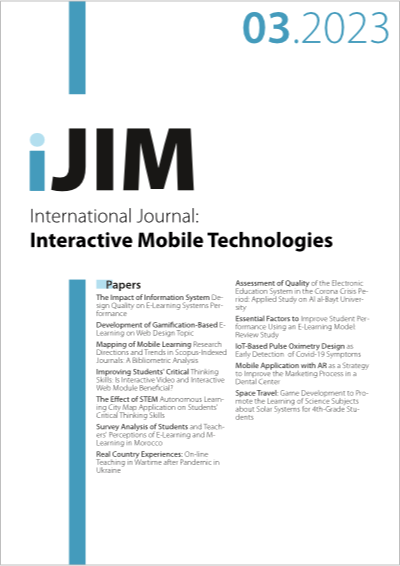Development of Gamification-Based E-Learning on Web Design Topic
DOI:
https://doi.org/10.3991/ijim.v17i03.36957Keywords:
gamification, e-learning, programming, htmlcss, engagementAbstract
Conventional learnings have given way to methods aided by technological advances. The approach known as Student-Centered Learning (SCL) is the foundation of e-learning. Furthermore, SCL demands students to be self-motivated to complete courses and engage with the offered learning content. Programming is one of the most important subjects to study independently and with the aid of an instructor. The need for graduates with programming and computational skills in the field of web design continues to receive widespread attention from the industry. However, problems such as low student engagement are often encountered in learning about programming concepts and syntax. Gamification is an instructional approach to facilitate learning and boost motivation through game elements, mechanics, and thinking. Therefore, this research aims to discuss the development of Gamification-based e-learning to increase student engagement and motivation, especially in HTML and CSS web design. This system was tested with 3 methods, including unit, system, and user testing. In user testing, this study involved 264 students from computer backgrounds to validate the system. The results show that the e-learning system can perform well according to the expected specifications.
Downloads
Published
How to Cite
Issue
Section
License
Copyright (c) 2023 Fajar Pradana, Prof. Dr. H. Punaji Setyosari , M.Pd, M.Ed., Saida Ulfa , S.T., M.Edu., Ph.D, Tsukasa Hirashima

This work is licensed under a Creative Commons Attribution 4.0 International License.



